6 Fruits to Avoid If You’re Trying to Lose Weight, Doctor Says

We all know eliminating processed foods, sugary drinks, white bread, and fried food helps when trying to lose weight and stay healthy, but some experts also recommend avoiding certain fruits. While they’re packed with antioxidants, fiber, and essential vitamins, some fruits also have a lot of sugar that can spike glucose levels and lead to weight gain, according to Janine Bowring, ND. The naturopathic doctor is often on TikTok giving tips on a slew of topics, including nutrition and fitness, how to get healthy skin, menopause, and more. In a recent video, she explains which fruits have the most sugar that can impact weight loss. Read on to see if your favorite fruit makes the cut or is on the list of those to avoid.
RELATED: 12 “Fake Health Foods” to Stop Eating If You Want to Lose Weight, Fitness Expert Says.
1
Bananas
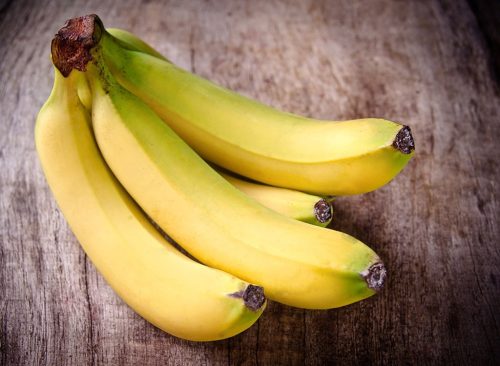
Bananas are one of the fruits that Bowring says is high in sugar and can, therefore, impact your weight-loss goals.
According to the Cleveland Clinic, one banana has more than 15 grams of sugar, the “sweet treat sugar equivalent” of a glazed donut.
However, in a separate TikTok video, Bowring says if you love bananas and are trying to lose weight, eat them when they’re on the greener side because they “have more resistant starch,” which isn’t “easily digestible by your amylase enzymes and it acts as a form of dietary fiber.” This is also helpful for your gut microbiome.
There are plenty of other healthy aspects of bananas, too, explains the Cleveland Clinic. They contain fiber, which aids digestion, vitamin C that helps boost immunity, vitamin B6 for improved metabolism, and potassium for good organ health.
2
Cherries
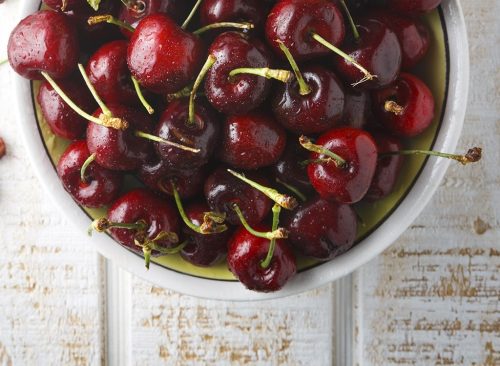
Next on Bowring’s list are cherries. The Cleveland Clinic notes that a cup of this fruit contains about 19 grams of sugar, the same as a full-size Snickers bar.
On the positive side, cherries contain polyphenol antioxidants, which help protect your heart from cell damage and reduce inflammation, according to WebMD. They may also help you sleep better, thanks to their high levels of melatonin.
Bowring adds that cherries contain salicylates, a naturally occurring compound found in plants, which she says is “great for joint pain.”
RELATED: The Only Foods You Should Be Eating at Night, Doctor Says.
3
Dried fruit
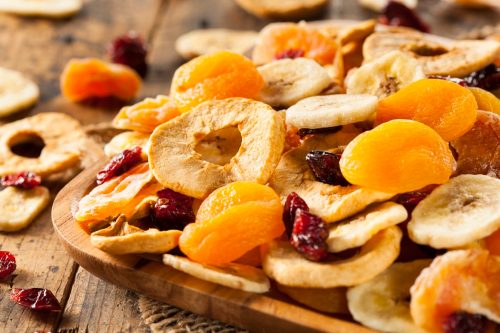
Dried fruit can take oatmeal, salads, and cheese boards to the next level, but many options are full of unhealthy and calorie-dense added sugars like cane sugar, corn syrup, or high-fructose corn syrup.
“Dried fruits spike that sugar even more so, so you gotta watch that or maybe not consume at all,” advises Bowring.
However, according to Harvard Health Publishing, dried fruit without added sugar can be a healthy treat.
“Dried fruits also contain more fiber and more of the antioxidants called phenols than fresh fruit, per ounce,” wrote Anthony Komaroff, MD, editor in chief of Harvard Health Letter. “People with diets rich in plant phenols have lower rates of heart disease, diabetes, several kinds of cancer, and possibly degenerative brain diseases.”
4
Grapes
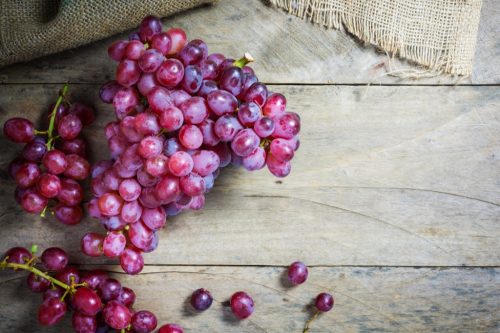
Grapes can jazz up everything from roasted chicken dishes to summer salads. They’re full of antioxidants that can help prevent cancer, they’re a great source of vitamins C and K, and they’re a healthy choice if you have high blood pressure, according to the Cleveland Clinic.
But with 15 grams of sugar per cup, grapes might best be avoided during your weight loss journey, says Bowring.
RELATED: 5 Antioxidant-Rich Foods That Trigger an Ozempic-Like Weight Loss Effect, Doctors Say.
5
Mango
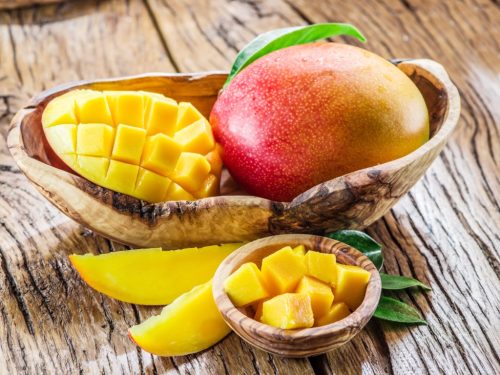
One cup of chopped mango has 2.6 grams of fiber and 67 percent of your daily recommended vitamin C, per the Cleveland Clinic. It’s also a great source of vitamins A, B6, C, E, and K.
However, if you’re trying to drop pounds, Bowring says to avoid eating mangoes since they’re high in sugar–46 grams of sugar per mango, to be exact.
To counteract the sugar in mangoes, the Cleveland Clinic suggests eating it with a high-protein food like Greek yogurt, “which can help slow the release of sugar into your blood.”
6
Pineapple
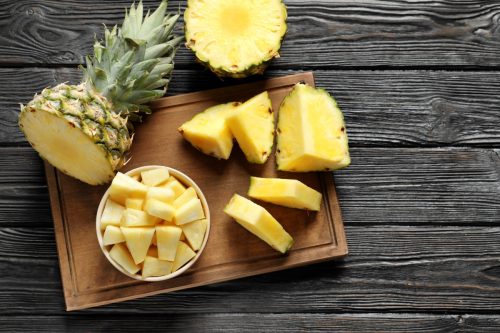
While pineapple has an impressive list of health benefits—it’s packed with vitamin C and manganese, says the Cleveland Clinic—Bowring notes that it’s also high in sugar. To be more specific, one cup of the fruit packs over 16 grams of sugar.
- Source: Cleveland Clinic: Which Fruits Have the Most Sugar?
- Source: Cleveland Clinic: 5 Health Benefits of Bananas
- Source: Harvard Health Publishing: Is eating dried fruit healthy?
- Source: Cleveland Clinic: 10 Health Benefits of Grapes
- Source: Cleveland Clinic: The Top 6 Health Benefits of Mangoes
- Source: Cleveland Clinic: The Many Health Benefits of Pineapple